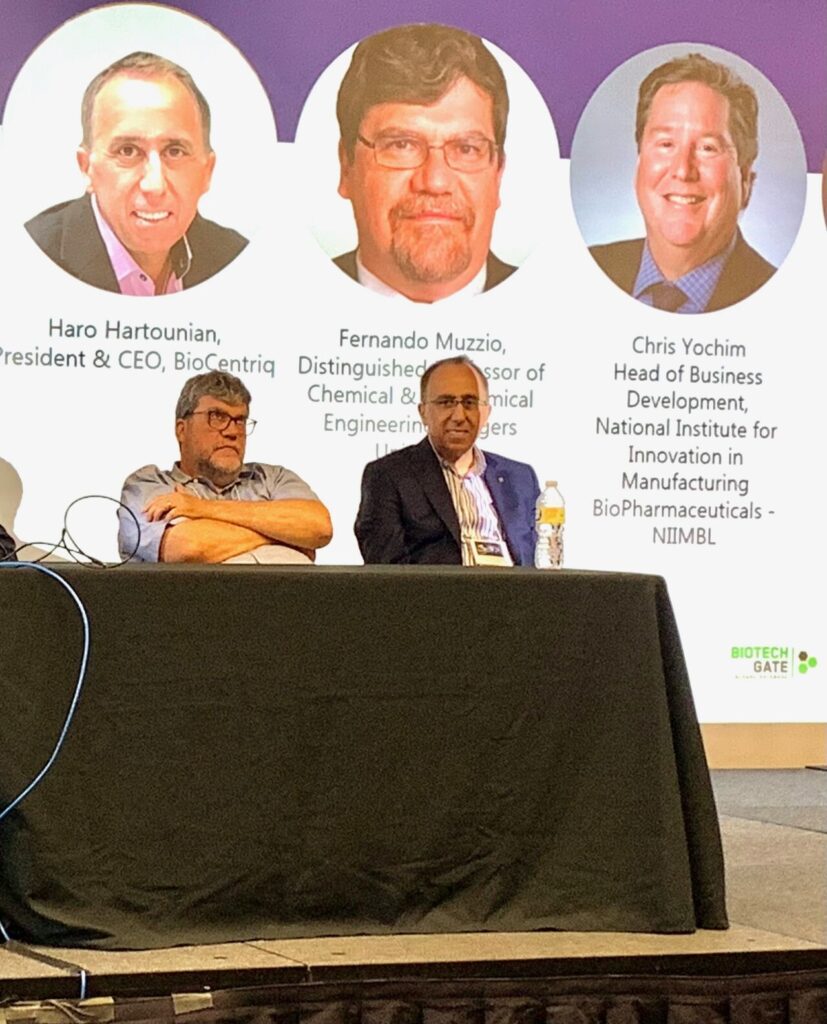This July, Rutgers held its Bio Manufacturing Innovation Summit, which brought together advanced bio-manufacturing thought leaders, leading spin-out and growth company innovators, and decision-makers within the industry. The conference was meant to stimulate innovation, impact, and value creation, and to “ensure resilient, adaptable supply chains, efficient re-shoring, on-shoring, and cutting-edge pharma manufacturing solutions to meet demand and accelerate the development and production of essential novel therapeutics and vaccines, in the US and throughout the globe.”
BioCentriq CEO Haro Hartounian, PhD was invited to speak at this conference in his capacity as a spin-out and growth company innovation leader. Previously a subsidiary of the New Jersey Innovation Institute (an NJIT corporation) BioCentriq was recently acquired by GC—a South Korean company founded in 1967 with a major footprint across healthcare sectors—for $73 million after a bid involving 50+ companies. BioCentriq now continues to develop and manufacture autologous and allogeneic cell and gene therapies with the support of GC, which will help BioCentriq continue to expand and keep pace with market demand.

Having provided strong leadership to drive an aggressive growth and profitability strategy for BioCentriq’s business, Dr. Hartounian provided the necessary direction and dynamic leadership to R&D, manufacturing, business development, regulatory and compliance, and operations. He developed an approach that enabled BioCentriq to forge client relationships that move beyond the traditional service outsourcing model into true end-to-end collaborations, and he sealed success by recruiting top-notch scientists, engineers, and professionals whose expertise aligned with BioCentriq’s goals.
“Our success story here at BioCentriq is the perfect example for others to look toward,” said Dr. Hartounian. “When we were building BioCentriq, what we wanted was to speak to the people actually developing novel therapeutics and understand what they needed—what they were missing. In doing so, we were able to bridge the gap that lies between universities and industry.”
In conversation with other panelists, Dr. Hartounian and his colleagues discussed the roles that a university can play in promoting cell and gene therapy collaborations between themselves and the industry. In this, BioCentriq was the perfect model. After learning from industry players what challenges they face in manufacturing cell and gene therapy products, BioCentriq was uniquely built to address those exact needs.
“Looking toward the future, I hope more innovators join the industry and meet the ever-changing needs of regenerative medicine,” said Dr. Hartounian.